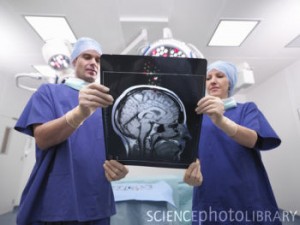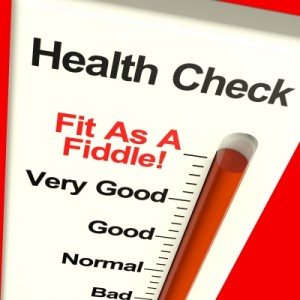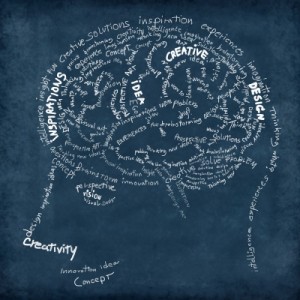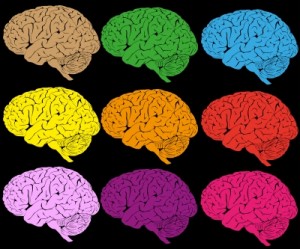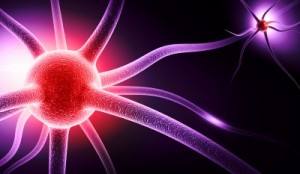Pernicious anemia (PA), or vitamin B12 deficiency, can sneak up on you…perniciously. Some of the earliest signs of pernicious anemia include brain fog– here are some symptoms that mean you should get a vitamin B12 blood test, pronto.
How can I get pernicious anemia?
Vitamin B12 is in much of the food you eat every day, but that doesn’t mean you’re necessarily digesting it. A large group of people don’t have the digestive enzyme needed in order to absorb vitamin B12 naturally from protein foods like beef, chicken, fish, milk, and eggs.
Without intrinsic factor, which is made in the stomach, you eventually (sometimes over the course of decades) get vitamin B12 deficiency, which in turn causes a breakdown in your overall health.
Causes of pernicious anemia range from autoimmune disorder to damage to the digestive system.
PA cognitive decline
The first thing you’ll notice with the onset of pernicious anemia is a general decay in your thinking skills, which some describe as “brain fog.” This is due to decreased oxygen in the brain, resulting from less red blood cell production, a common symptom of vitamin B12 deficiency.
If you have pernicious anemia or other forms of vitamin B12 deficiency, you may experience some or all of the following symptoms of cognitive decline:
How to keep Vitamin B12 Deficiency from Shrinking your Brain
Brain fog
If it seems like you’re always in a daze, or fog, then you’re suffering a condition common to many autoimmune disorders, including pernicious anemia, fibromyalgia, and multiple sclerosis (MS).
Brain fog, or brain drain, is often described as “thinking in autopilot,” having a “senior moment,” or thinking in “slow-mo.”
Constant confusion
Another sign of brain fog is feeling like you don’t understand things happening around you, even if it just takes you a second longer than usual to “get it.” Again, this is not something to be ashamed of, but it does signify a medical condition that requires immediate attention.
6 Surprising Causes of Memory Loss
Chronic fatigue
Do you wake up feeling exhausted, lethargic, or just too tired to get out of bed, even though you slept well the whole night? Do mundane chores like shopping, running errands, or performing work duties make collapse before the day’s end? Do you always feel achy and weak, as if you ran a marathon, even though you refrain from physical exercise? These are all common signs of chronic fatigue syndrome (CFS), a disabling condition that often correlates with pernicious anemia.
Breathlessness
Don’t confuse this symptom for panting or being short of breath, which is a sign of hypertension or stress. People with brain fog from pernicious anemia often feel the need to sigh deeply, and sometimes feel that they can never take a long comfortable breath. Like frequent yawning, this is also a sign of insufficient oxygen in the brain.
Forgetfulness
Difficulty remembering things occurs frequently with pernicious anemia, as vitamin B12 is essential for maintaining brain health.
Symptoms of decreased memory include:
- Inability to recall familiar words or names of people
- Inability to memorize a short list of familiar words
- Difficulty remembering numbers or numerical codes
- Recent decline in math skills
- Forgetting important dates, like birthdays of close family members
- Needing a memo to remember close-pending appointments
- Repeating questions frequently
- Forgetting conversations you had a few days previously
Mental health
 A number of mental illness symptoms correlate strongly with cognitive decline from vitamin B12 deficiency, leading many psychiatrists to misdiagnose patients as insane, when vitamin B12 supplements would significantly reduce the symptoms.
A number of mental illness symptoms correlate strongly with cognitive decline from vitamin B12 deficiency, leading many psychiatrists to misdiagnose patients as insane, when vitamin B12 supplements would significantly reduce the symptoms.
Pernicious anemia may lead to mental disorders, such as:
- Depression
- Paranoia
- Anxiety
- Hallucinations
- Aggressive behavior
- Mood swings
- Uncontrolled crying spells
Other pernicious anemia symptoms
In addition to your cognitive health, pernicious anemia also affects your
- Central nervous system
- Peripheral nervous system
- Gastrointestinal system
- Red blood cell production
- DNA synthesis
- Energy levels
- Vision
- Motor skills
- Sexual health
- Bone health
- Cardiovascular system
- Hormones
- Immune system
- Hair, skin, and nails
Read more about B12 and the brain
Here’s Your Brain on B12 Deficiency- Memory Loss and Aging
Tired of being Tired all the Time…It’s Tiring!
7 Reasons You Have Brain Fog…And What to do About It
Please tell us…
Share with your friends!
References:
Sub-Acute Combined Degeneration of the Cord Secondary to Pernicious Anaemia PDF
B12 Deficiency – a Multi-system Polyglandular Multi-point syndrome
Images:
ZERO CREATIVES/SCIENCE PHOTO LIBRARY, Now and Zen Photography, graur codrin











